Get students comparing and ordering decimals using visual models with this set of 24 task cards perfect for maths rotations.
Compare and Order Decimals Using Visual Models
Being able to represent decimal numbers in different ways is an important part of students’ number sense. Using number lines, for example, helps them grasp the relative size and placement of decimals, reinforcing the idea that decimals represent points on a continuum. Relating decimals to real-world contexts, like money or measurements, helps students see the practical implications of decimal operations.
To help students further develop their understanding of how decimals can be visually represented, the Teach Starter team has created this set of 24 task cards containing different representations of decimal numbers less than 1. Some representations contain tenths only, whereas others contain both tenths and hundredths. By completing these decimals task cards, students will be able to compare and order decimals based on these visual representations.
The resource download includes:
- Instruction Page – This provides a clear guide on how to use these comparing and ordering decimals task cards in your classroom.
- Task Cards – Each card features a different visual representation of a number of decimals for students to either compare or order.
- Recording Sheet – This can be used as a dedicated space for students to record their answers and show their work.
- Answer Page – An easy way to check student solutions and provide immediate feedback.
We have provided an easy-print PDF or an editable Google Slides version of these comparing and ordering decimals task cards. Answers are also provided in the download to make marking quick and painless!
This set of representing decimals task cards would make a great addition to any maths lesson focused on comparing and ordering concrete representations of decimals to the tenths and hundredths place.
Multiple Uses for These Comparing and Ordering Decimals Task Cards
There are many ways in which these task cards can be used to enhance your lessons on decimal representations. Here are a few suggestions from our experienced teacher team:
- Scoot Activity – Place the cards around the room in numerical order and give each student a recording sheet. Assign students or pairs to a starting point card. Give students time to review the card and record their answers in the corresponding space on their paper. Students will rotate to the next card when you say, “SCOOT!” Continue in this manner until students return to their starting point.
- Scavenger Hunt – An adaptation of the above. If you have easy access to an outside area, place the cards around for students to find and then complete. This not only gets students moving but also gets them outside the classroom for a change of scenery!
- Task Card Relay – Divide the class into teams and set up task cards at different stations. Each team member must run to a station, analyse the decimal representations, and run back to report the decimal value to their team. The first team to correctly identify all decimal values on their recording sheet, wins!
Download To Explore Visual Models of Decimals
Use the Download button above to select your chosen file format.
As this resource contains an answer page, we recommend printing one copy of the entire file, removing the answer page, then making further copies if required.
Print the cards on thick card to increase the durability of the resource. Place the cards together in a large envelope or ziplock bag for safekeeping.
This resource was created by Kaylyn Chupp, a Teach Starter collaborator.
Click for More Engaging Decimals Resources
Don’t waste time searching the internet for high-quality, curriculum-aligned resources to use in your maths lessons! Everything you need is merely a click away, so check out the suggestions below!
[resource:56775] [resource:4950007] [resource:5059449]
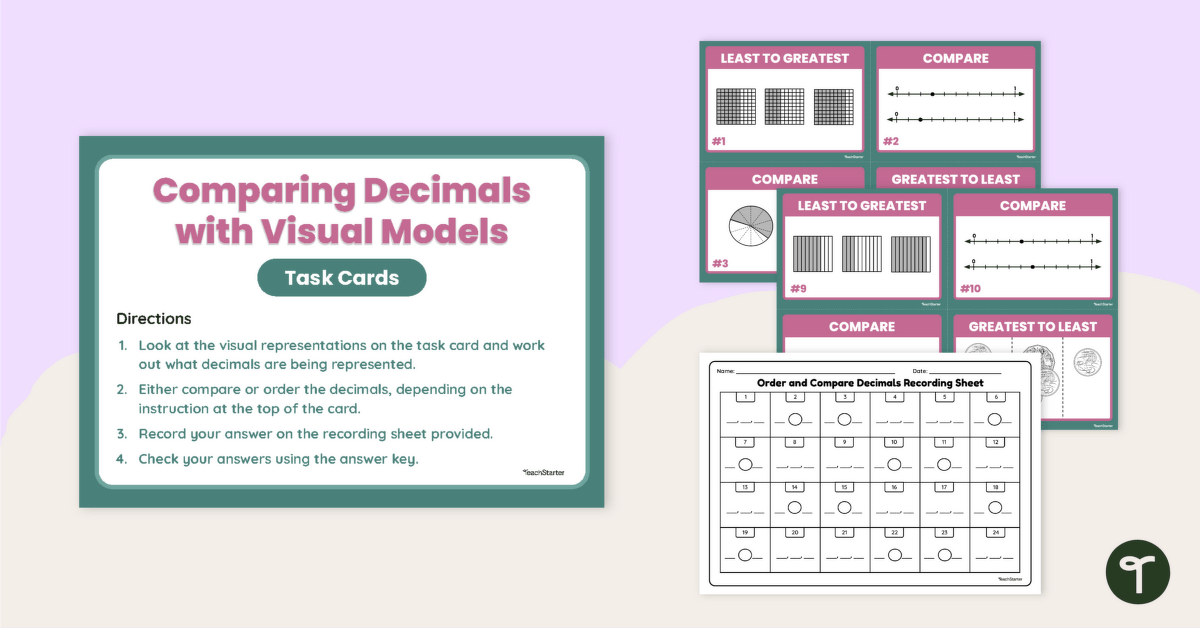

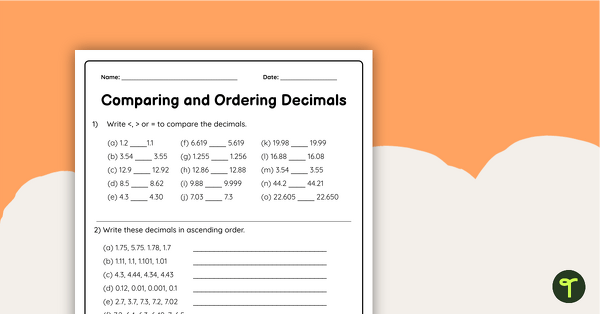
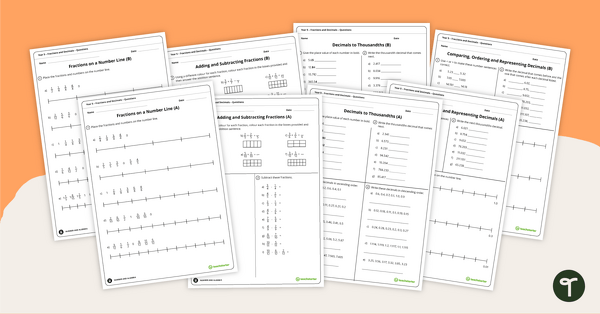
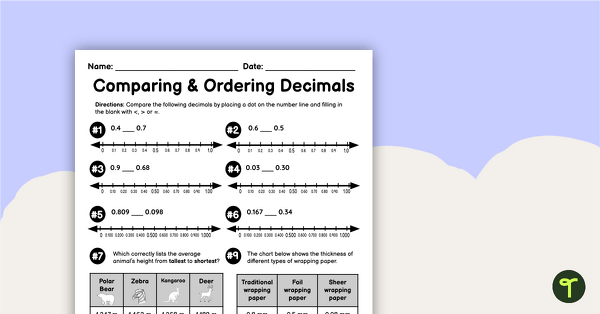
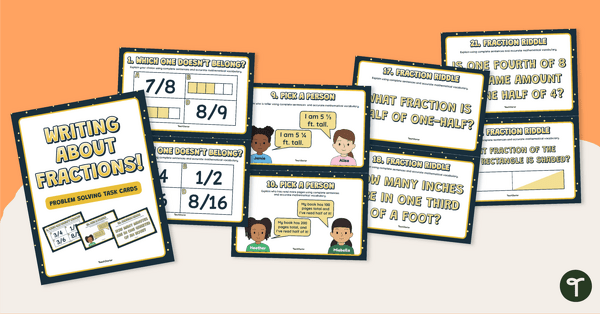
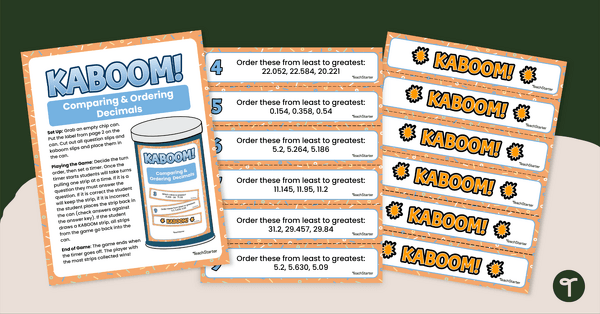
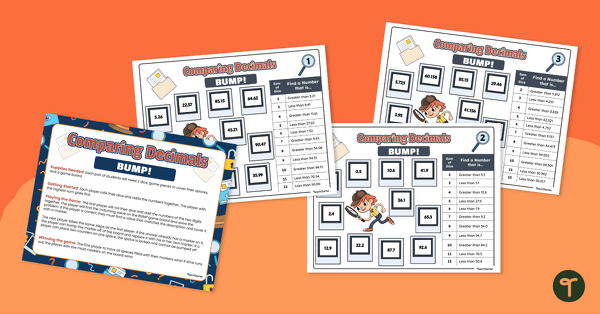
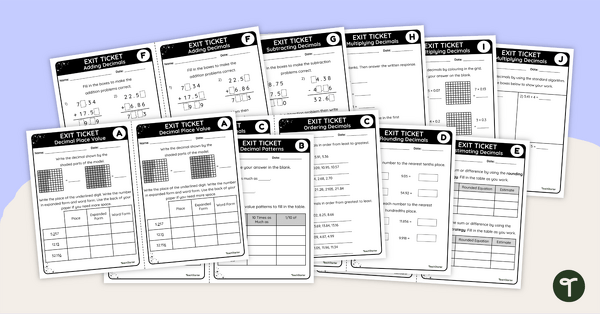
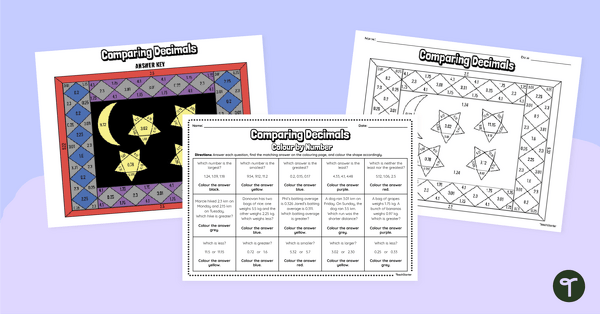
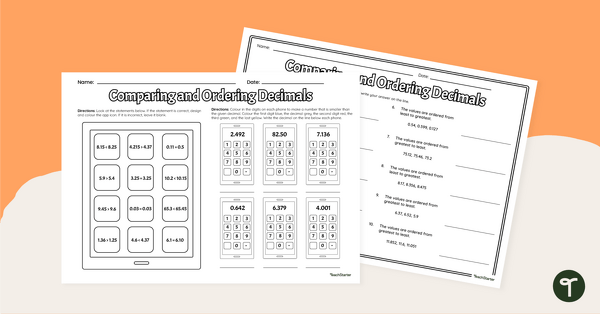
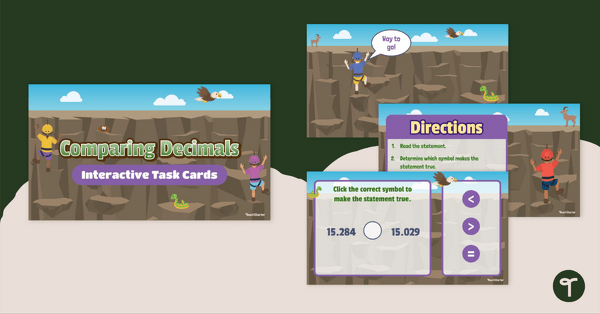
0 Comments
Write a review to help other teachers and parents like yourself. If you'd like to request a change to this resource, or report an error, select the corresponding tab above.